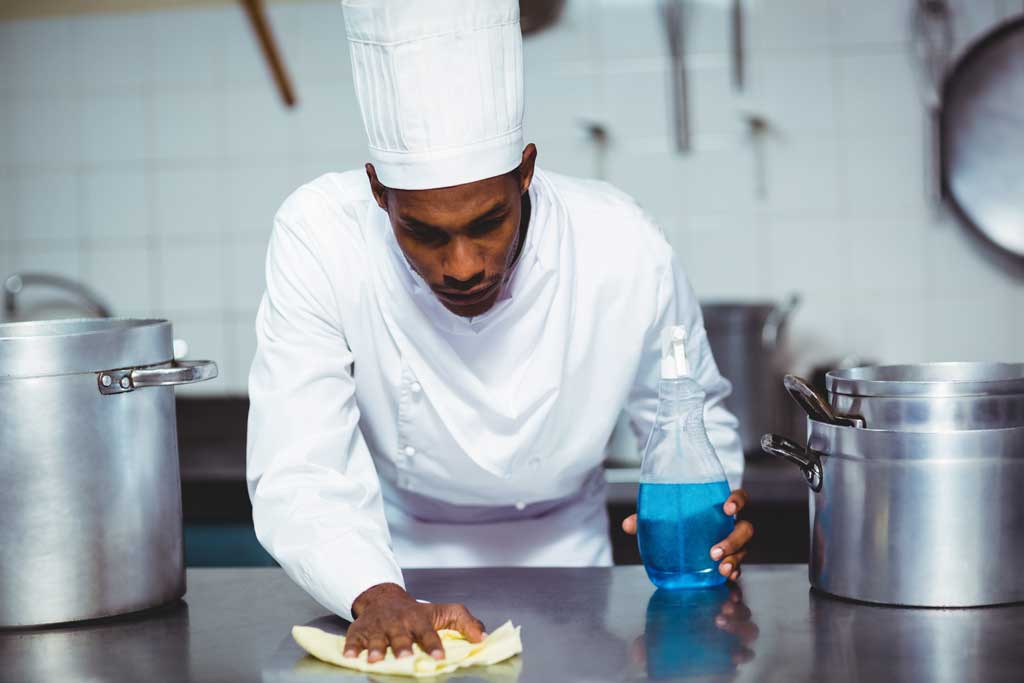
The agri-food industry (AIA) is the set of industrial activities that transform raw materials from agriculture and/or fishing into food products intended for human consumption .
The agri-food sector is one of the risky activities in terms of health and safety. He is very concerned by the problems related to the cleaning and disinfection of premises to fight against various sources of contamination representing both a public health issue and a human issue. Therefore, the cleaning and disinfection process is part of a regulatory framework and must meet very strict hygiene (HACCP) and cleanliness standards while preserving the health and safety of employees.
The cleaning and disinfection operations of the premises involve the implementation of a cleaning plan and the use of detergent and degreaser to remove dirt, waste from the industrial process.
The cleaning plan is a reference document that presents and details the periodicities of intervention and the measures put in place to clean and disinfect. The document specifies:
Having a food processing unit that is clean, free from dirt, contamination or infections of microbiological and chemical origin, requires a cleaning methodology. Here are 7 steps to follow:
Clear the work area, disassemble, unplug, remove food and waste.
Remove the largest visible stains, pre-wash with a jet of cold (milk protein) or hot (fat) water and scrape.
Use a detergent that facilitates the removal of dirt. The use of detergent can be done by sprinkling, soaking, mop, sponge, broom, foam cannon.
Remove dirt with hot or cold water and remove traces of detergent still present in order to promote the action of the disinfectant applied in the next step.
Reduce the number of microorganisms remaining on surfaces and materials with a disinfectant.
Remove traces of disinfectant solution by using cold potable water.
remove rinse water using cleaning tools (squeegee, sponge, …)
Cleaning operations call for the use of detergent, degreaser and disinfectant which are used according to the places and surfaces to be maintained (wiping, sculling, stripping, vacuuming, etc.).
They remove organic (grease, blood, sugar, starch, protein, etc.) and inorganic (mineral salts, rust, carbonization residues) residues and dirt. The cleaning must comply with the HACCP system which imposes rules in terms of food hygiene.
The Hazard Analysis Critical Control Point, HACCP for short, is a method that defines, assesses and controls hazards threatening food safety and security.
Food-grade cleaning products can potentially cause skin irritations and more. It is essential to have Personal Protective Equipment (PPE) to protect workers in the event of work accidents: work clothes, mask, safety shoes, gloves, etc.
Agro-industrial cleaning requires specialized maintenance services. Hilcom Trading Company 3D (HTC-3D) offers equipment and maintenance services adapted to the agro-industrial sector